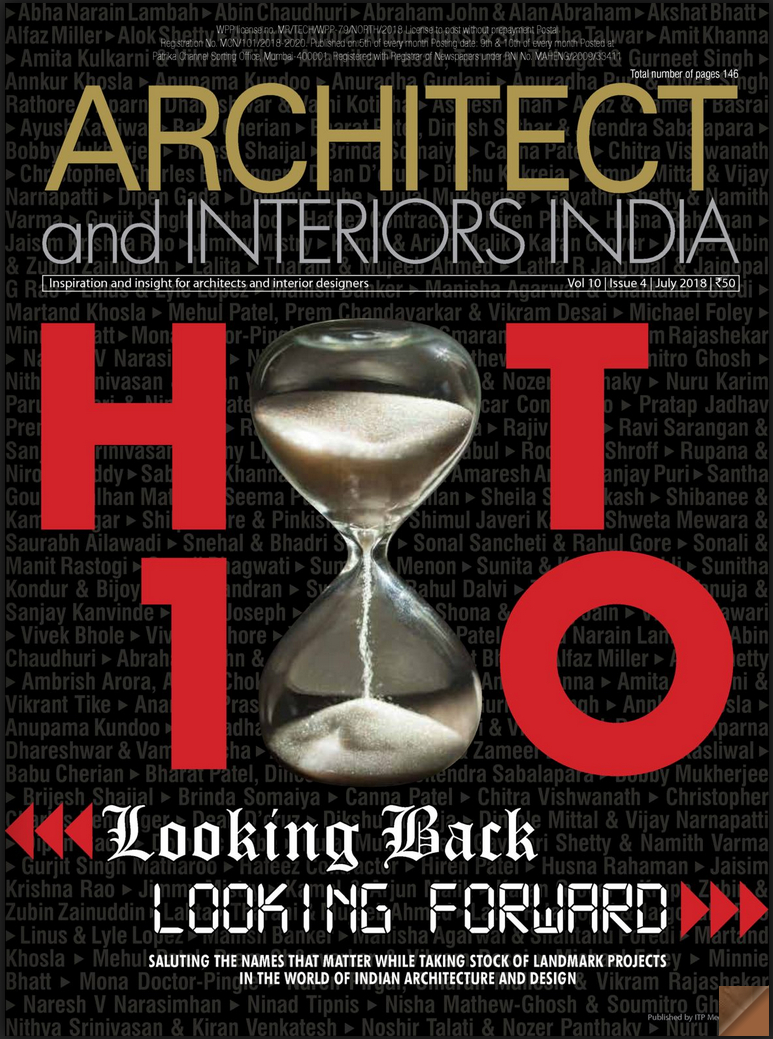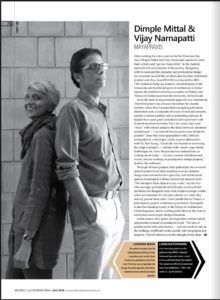


After working for a few years in the San Francisco Bay Area, Dimple Mittal and Vijay Narnapatti aspired to come back to India and “get our hands dirty” in the material and craft-rich environment of the country. Bengaluru, with its cosmopolitan character and professional design environment, seemed like an ideal place for their craft-based practice and, thus, mayaPRAXIS was founded in 2001. “We wished to bring our modern, critical thinking to the vernacular and traditional spirit of the architecture in India,” explain the architects who have a masters in History and Theory of Architecture from the University of Cincinnati.
From the start, an experimental approach was maintained. Their first project was a house renovation for a family member where they incorporated corrugated galvanized aluminium roof, a composite structure of steel and concrete, exterior wooden partition and an interesting staircase. It helped them meet good consultants and experiment with material structure and form. For a few years, they were “stuck” with interior projects; the idea, however, remained architectural – “we resisted the decorative tone of interior project”. Soon they were approached with a 100-acre masterplan by a developer, which was in collaboration with Dr. Ken Yeang. “Gradually we focused on increasing the projects – schools, hotel, resort, yoga retreat, footbridges, etc. Now the practice has matured into an exciting set of works – we have curated exhibitions and events, and are working on participatory design projects,” disclose the architects.
Through all these projects, their philosophy has revolved around certain fixed ideas: tradition is never constant, design does not need to be a spectacle, and architectural space is meaningless without context and material form.”We introspect these ideas in every work,” say the duo who are eager participants and activists, convinced that architects and designers have what it takes to shape a better urban environment. It’s not just a dream or a wish, they actively pursue their roles. Their Gandhi Bazaar Project, a participatory project, is bottoms-up inclusive. Narnapatti is also the founding faculty of the School of Architecture, Christ Bangalore, and is working with others in the team to restructure and energise design education.
In this context, they prefer advising fellow architect about opportunities instead of mistakes to avoid. “The idea of practice need to be adventurous – and one needs to take on the challenge of difficult works, socially relevant projects and research. This will inform us on the strength of our ideas.”